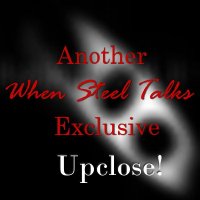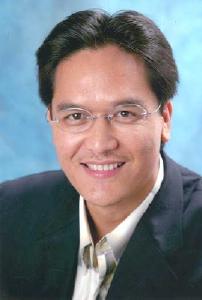
Global - For over a decade, songwriter Mark Loquan has been applying the craft successfully to the steelband music genre. In addition Mr. Loquan has been a champion of music literacy and the documentation of the music works of the steelbands of Trinidad and Tobago.
Here, in an exclusive interview with When Steel Talks (WST) Mark Loquan talks about his past, his present, the challenges of being a songwriter for the steelpan music art form, and more.
See tunes by Mark Loquan Discography – music by Mark Loquan
WST - “You have been involved in writing songs adapted for panorama for some time now. What has changed for you, and the art form over the years?”
Loquan - “2010 will be 12 consecutive years of composing and writing for Panorama. Before that, in 1998 my first song performed on pan was “A Land For All” by the winning ensemble, Super Sonics, for Pan Is Beautiful IX, arranged by Andy Sheafe.
“For me personally over the years, what has changed is my perspective towards trying to preserve music and promoting music literacy, and also thinking beyond the Panorama events, so excuse me if I sometimes digress outside of Panorama. Hence my involvement with the Music Literacy Trust as well as playing some role in Pan in Education and similar products, and even getting Panorama arrangements transcribed for conventional orchestra as an experiment (like “Nostalgia” and “Colours Again,” arranged by Liam Teague, transcribed by Gary Gibson, performed by the National Sinfonia). Now - working in Africa also means less time available for me to do some of the things I have been involved in, but perhaps I will still play a role in these areas, and continue to compose.
“In terms of the art form, which I will confine to music for pan, that is a broad question, as we have seen great works for the World Steelpan Festival and other Steelpan Festivals. We have seen Gary Gibson and Attiba Williams composing several winning pieces for Symphony and Steel (by Methanex, UWI and the Music Literacy Trust). For panorama, I am not sure how we are progressing as an art form with music composed for the pan, which people like Ray Holman and Lord Kitchener truly innovated and understood. Some trends which exist: The steelbands consist of a lot more young people, who have somehow been attracted to the party music, but yet the audience may be more used to the more traditional songs for pan. I am not saying one is better than the other, because at the end of the day what counts for me is a good melody, theme, and structure suited for the energetic environment of panorama, one which can involve players and audience. The radio stations have largely been dominated with party music, fast rhythmic, less melodic music during Carnival. In my opinion, some of the so called pan songs seem to be songs which mention the word pan, and sometimes sound similar from year to year with similar phrasing and predictable chord patterns. So I am not sure we are truly innovating music to maximize the potential of the instrument.
“As a composer, it is challenging for me to produce music which appeals to both players and audience, and at the same time get radio play, which is why I have been experimenting with party music for pan over the years with Destra [Garcia] since “Colours Again” in 2006. I am not sure Panorama as a single event can bring about such innovation of music, which is why we need to see more music composed specifically for the instrument via steelpan and music festivals as well, which do not necessarily fall in the atmosphere of Panorama. For the artform to develop, it is also important that we document our arrangements and utilize in our education system for other arrangers, composers, etc. in the next generation to learn from. At the Silver Stars 60th anniversary, six pieces of the band’s repertoire were documented by Yara, the Music Literacy Trust and UWI, to be utilized in education. Can one imagine if all bands were documenting their repertoire and new arrangements as a routine so that we do not lose great pieces of work?”

Mark Loquan
WST - “You have two songs out for 2010 - ‘Rewind’ and ‘Surrender.’ Where do they fall in your opinion among your past body of work?”
Loquan - “I think in the spectrum of pan music, they fall in the zone of party-flavoured music which can also sound good on pan. The song “Rewind” was not even written for Panorama 10 years ago, but with Destra’s lyrics complementing the music, it tells a relevant story and can sound good on pan for Panorama, because of its melody, and in this case simplicity. Songs need not be too complicated either, to be a nice song for the instrument. “Surrender” - composed as a collaboration between Ken “Professor” Philmore, specifically for Panorama - is another example of music which can embrace the party scene and still be appropriate for Panorama.”
WST - “There are lots of songs [that may be considered for Panorama] for 2010 this year. What do you see as the motivating factor behind this movement?”
Loquan - “Well I know some students of the University of the West Indies (UWI) and some Music Literacy Trust scholars - members of the National Steel Orchestra, players and/or arrangers in their own right - decided to do their own music for panorama. So we are getting a cadre of younger arrangers coming up. In addition some have chosen to record and arrange their own songs in home studios, so I suppose that it has become easier to do so with technology, without having to depend on the big name studio producers every year. In spite of there being a choice of new songs and vintage music to be played for Panorama, people are still choosing to create new music, which is a good sign. Arrangers composing their own music such as Edwin Pouchet, Leon “Smooth” Edwards, Amrit Samaroo, Ken Philmore, are also on the rise, i.e. not only Ray [Holman] or Boogsie [Sharpe] - which I believe is healthy, given that they should understand the instruments for which they compose. That does not mean to say there is not room for people like myself, who are not arranging, to compose for Panorama. I have chosen though to work with arrangers such as Edwin Pouchet on Celebration Time (2008), Amrit Samaroo on Brazilian Flag Woman (2009) or with Ken Philmore over the last 3 consecutive years, because it was interesting for me to get their perspective, which I also did with Andy Sheafe in the late 90s. A collaboration between a composer and an arranger to create new music is interesting and experimental for me.”
WST - “What is the future of the ‘pan tune?’ Should there be a special classification or recognition for the ‘pan tune?’”
Loquan - “Not really. I believe we should just try to compose good music for the instrument, whether it be music like Kitchener or new music, and we should aim to NOT depend only on Panorama to evolve new music for the instrument. We should (a) score arrangements so as not to lose them because someone forgot to play a part or is no longer around, and (b) make them available for students in our education system as well so we can study the techniques of others.”
WST - “What is a pan tune from your perspective?”
Loquan - “If we are talking Panorama, then it is a song which has a good melody and structure which will accommodate the 8-minute arrangement, usually meaning long verses and choruses leave less room for arranging, and it should possess the energy that normally appeals to an audience in the Panorama environment. It may or may not have pan in its theme or even mention the word pan. “Colours Again” was about the experience at Carnival time. “We Can’t Go on like This” by Ray Holman was talking about what was going on in Trinidad. “Coffee Street” by Andy Narell was a great piece of music for the pan.”
WST - “What is next for Mark Loquan?”
Loquan - “Trying to complete Pan in Education 2, which I started some years ago, which has been delayed by me now working in Africa, and continuing to support the Music Literacy Trust where I can. Perhaps it would also be good to work on music and steelpan in Angola if I get the opportunity to so do.”
More on Mark Loquan
Leave a comment in the WST forum


 When Steel Talks shirts
When Steel Talks shirts